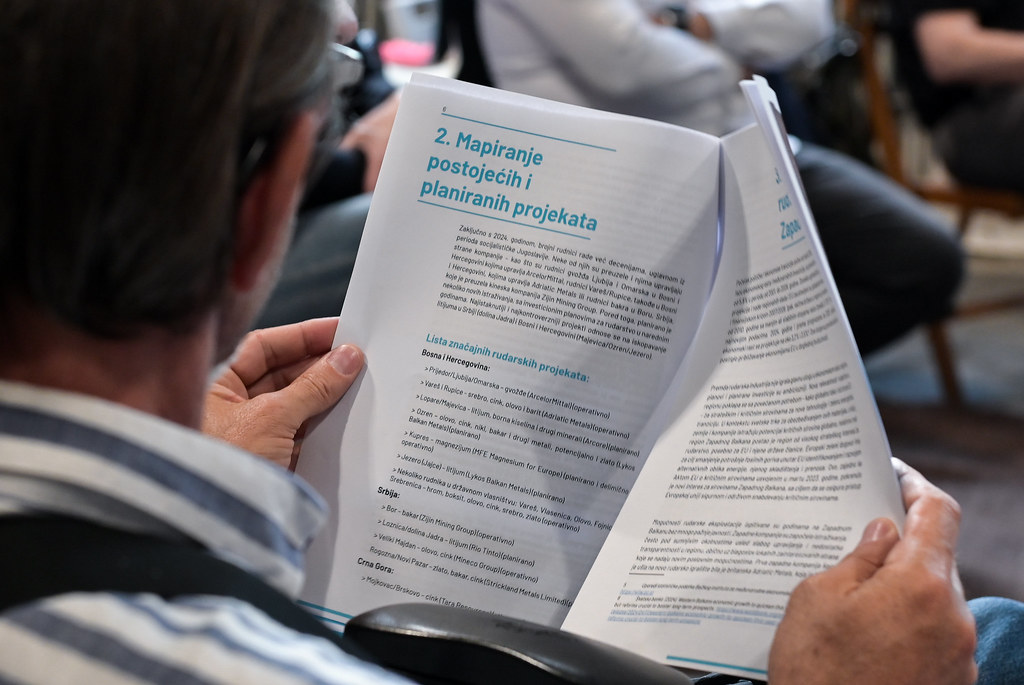
From May 21 to 23, Skopje hosted the third convention of the Engaged Democracy Initiative (EDI), gathering around 100 activists, journalists, and changemakers from across the Western Balkans. Organized by the European Fund for the Balkans (EFB), the event focused on pressing regional issues including environmental degradation, shrinking public space, media sustainability, labor rights, digital surveillance, and the rise of anti-gender movements - all under the theme “Engage, Inspire, Empower!”
The Balkans in Europe Policy Advisory Group (BiEPAG) actively participated in this year’s EDI, with several members present who are deeply engaged in these thematic areas. One of the convention highlights was the presentation of BiEPAG member Vedran Džihić’s policy brief, “The Rise of Dangerous Transactionalism: Mining in the Western Balkans.”
Džihić’s analysis sheds light on the growing number of large-scale mining projects in the region, including lithium extraction in Serbia’s Jadar Valley and exploration plans in Bosnia’s Majevica and Ozren regions. These projects, often initiated by foreign corporations with government backing, raise serious concerns about environmental destruction, lack of public consultation, and the weakening of democratic processes.
At the heart of the brief is a critique of the EU’s evolving approach to the region. Džihić argues that the Union, driven by its Critical Raw Materials agenda and the Green Deal, is increasingly prioritizing access to strategic resources over democratic standards and rule of law. This shift toward “deal-oriented” partnerships-most notably seen in the revived lithium agreement between the EU, Germany, and Serbia - threatens to reward authoritarian governance and deepen state capture.
The presentation resonated with many EDI participants, particularly those involved in grassroots environmental activism. It underscored the disconnect between EU rhetoric on values and its practical support for extractive deals that bypass democratic accountability.
BiEPAG’s participation at EDI reaffirmed the importance of linking expert policy analysis with civic resistance across the Western Balkans. Džihić’s brief serves as a timely warning: transactionalism may bring short-term gains, but it risks long-term harm to democracy, environmental sustainability, and EU credibility in the region.
The full policy brief “The Rise of Dangerous Transactionalism: Mining in the Western Balkans” is available for download at: https://www.biepag.eu/publications